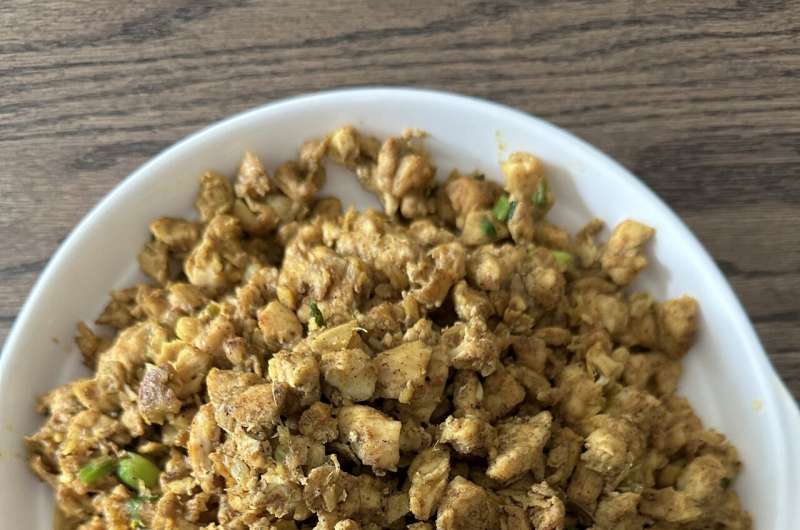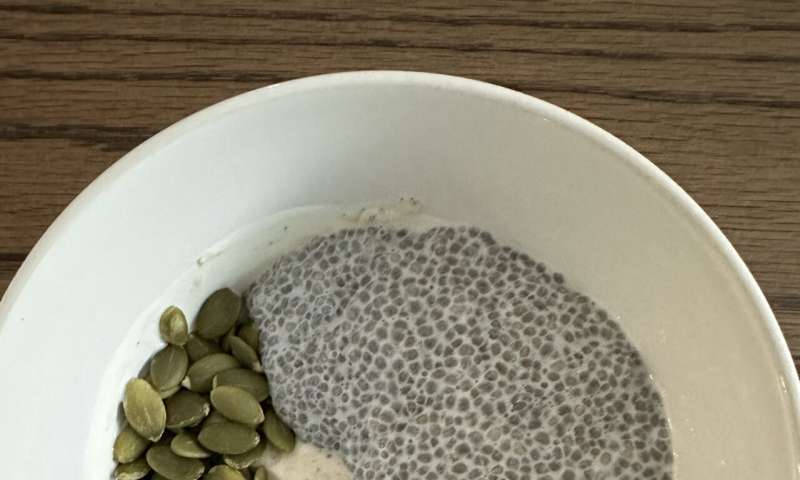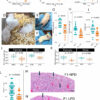It is estimated that over 1 billion people in the world are affected by metabolic syndrome–which includes conditions such as insulin resistance, obesity, high blood pressure, and high cholesterol, among others.
Among many interventions which have been used to address this major issue, ranging from medications to lifestyle modifications, an increasingly popular dietary intervention has been intermittent fasting, where calories are consumed within a specific timeframe. Examples include the “16:8 fasting” regime, where calories are restricted for 16 hours followed by an 8-hour eating window, and longer fasts reaching over 48 hours.
Intermittent fasting has gained significant attention in recent years, and emerging evidence from various studies suggests several potential benefits and mechanisms.
A possible benefit that can be unlocked through intermittent fasting is the concept of metabolic switch, where a person switches from using sugar as their primary source of energy to using fat. When fat is broken down, the body reaches a metabolic state widely known as ketosis, where ketones are produced as an alternative energy source.
In a first-in-kind study, Professor Dean Ho, Director of the Institute for Digital Medicine (WisDM) at the Yong Loo Lin School of Medicine, National University of Singapore (NUS Medicine), documented his own journey of using digital health technologies, including sensors and wearables, and intermittent fasting to delve into the concept of ketosis and its health benefits.

Food that Prof Dean Ho consumes: Salad with salmon and avocado slices. © Prof Dean Ho
The results appear in PNAS Nexus.
Known to be a very fit individual with a long history of gym workouts incorporating weightlifting and cardiovascular training, Prof Ho is also an avid fasting enthusiast.
He implemented a detailed regimen that included a minimum of 20 hours of fasting per day, strength or cardiovascular training every morning, a “clean eating” diet consisting of leafy greens, seeds, olive oil, lean protein, and other foods commonly found in the Mediterranean diet, and beverages consisting of only water, black coffee and black tea without milk and sugar.
During the experiment, Prof Ho was assessed as healthy, with an A1c level of 4.8%, or 29 mmol/mol—which means that his average blood sugar levels over the past three months were normal.
Over the course of seven months from May to November 2023, Prof Ho experienced improved health and fitness outcomes, including weight loss of around 7.5 kg, a 20% increase in grip strength, as well as the ability to lift weights that are 10% heavier, and also completed 1,000 push-ups in under 40 minutes.

Food that Prof Dean Ho consumes: Salad with nuts, olives and egg whites. © Prof Dean Ho
Prof Ho, who is also Head of the Department of Biomedical Engineering at the NUS College of Design and Engineering (NUS CDE), and Director of the NUS N.1 Institute for Health, said, “The experience changed my whole concept of fitness. For example, I can now lift weights that I had never been able to lift 20 years ago.
“As individuals are all different from one another, and even from themselves over time, this approach represents a shift towards more personalized and engaging health management. By observing the dynamics in health responses to different interventions, sticking to a health regimen can potentially be converted into a game-like experience.”
Prof Ho used multiple digital health technologies to monitor an array of markers including his blood ketones, glucose, blood pressure, and body weight. The experiment showed that his production of ketones followed a clear pattern that was repeatable as Prof Ho adhered to his regimen every day: ketones were high in the morning, dropped following his workouts, and were high again prior to breaking fast in the evening.

Food that Prof Dean Ho consumes: Chicken breast and olive oil/spices. © Prof Dean Ho
The study revealed that ketone levels can change quickly in response to activities such as fasting and exercise, and metabolic switch is achieved when ketones reach a threshold level, serving as a very clear and measurable objective to reach.
These findings point to the possibility of personalizing health management at the individual level: visualizing one’s biomarker data dynamics and progress during a regimen can inform and incentivize users to increase their adherence to healthy interventions—sustaining their engagement to achieve improved health outcomes over a period.
While Prof Ho’s regimen required substantial discipline, the approach can be personalized according to an individual’s preferences and habits, for sustained user engagement. This is key in achieving the desired health outcomes.

Food that Prof Dean Ho consumes: Salad with cucumbers, celery and green apples. © Prof Dean Ho
He added, “My recommendation is not for everyone to fast 20 hours a day, but rather, to find a schedule that is safe and works best for them. Initiating small habits is a good way to build towards a more comprehensive health regimen—this can include removing sugar from morning coffee, and then gradually removing milk, and removing sugary foods from one’s diet.
“It is key to enjoy the process, and not jump right into an intense fasting regimen—which be very overwhelming. Additionally, it is important for individuals with existing health conditions to consult their doctors before implementing a fasting regimen.”
Dr. Peter Wang, research fellow at WisDM, and co-first author of the paper, said, “The objective of this study was to explore a sustainable approach to a healthy lifestyle with simple habits, such as adhering to dietary and fitness regimens, that anyone can follow and build on. A personalized approach that combines digital technologies and innovative strategies is necessary to understand everyone’s intervention response longitudinally—and effectively drive and sustain behavior change.”

Food that Prof Dean Ho consumes: Greek yogurt with chia seeds and pumpkin seeds. © Prof Dean Ho

Food that Prof Dean Ho consumes: Steamed chicken breast and broccoli. © Prof Dean Ho
The findings from this study are an important step forward for the emerging field referred to as the “Quantified Self,” where digital health solutions provide a window into the user’s own health. This approach may encourage subjects to take more self-initiated ownership of their health outcomes.
This work also provides additional insights into the health economics, clinical innovation, nursing, and community health considerations to enhance the reach of data-driven health improvement strategies.
Collectively, these insights may subsequently drive preventive health for the population and serve as the impetus for a larger metabolic health trial that Prof Ho and his team are planning, to study how the knowledge of one’s own dynamic health data affects behavioral change at an individual level.
More information:
Peter Wang et al, N-of-1 health optimization: Digital monitoring of biomarker dynamics to gamify adherence to metabolic switching, PNAS Nexus (2024). DOI: 10.1093/pnasnexus/pgae214
Provided by
National University of Singapore
Citation:
Using digital technology and data to sustain intermittent fasting and improve health outcomes: One man’s journey (2024, June 21)



